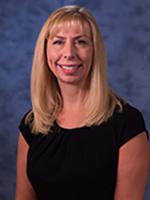The Loma Linda University PGY2 Oncology Pharmacy Residency Program is fully accredited by the American Society of Health-System Pharmacists (ASHP).
The resident will develop the knowledge, attitude, and skills necessary to become an advanced pharmaceutical care practitioner in the area of oncology. The program is structured to suit the individual needs of the resident and provide an environment of quality training in pharmaceutical care. The PGY2 Oncology Residency Program offers the opportunity to experience a variety of oncology practice settings such as adult oncology, pediatric oncology, ambulatory infusion clinics, palliative care service, investigational drug service, or symptom management clinic. Loma Linda University Health is dedicated to the necessary training of competent clinical pharmacists in specialized areas. Loma Linda University Health is home to six hospitals and many clinics, including the Loma Linda University Cancer Center and the James M. Slater Proton Treatment and Research Center.

